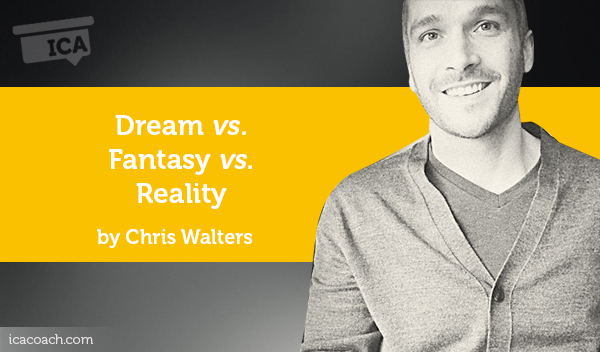
A Coaching Power Tool Created by Chris Walters
(Personal Development Coach, USA)
Introduction
When do our dreams transition from the probable to the improbable, or what about from the improbable to the probable? How much control do we have over what is probable or improbable in our own lives? When do our fantasies turn into our dreams? When are our dreams actually a fantasy? And how do we make our dreams our reality?
If you haven’t already, please take a moment and read the definition of dream and fantasy and reality, paying extra attention to the lines that are accented with blue text. Take note that fantasy is mentioned twice in the definition of dream, but dream is never mentioned in the definition of fantasy, accented in red text. So it’s fair to say, in the most literal interpretation of the relationship of dream and fantasy: a dream can not exist in a fantasy, but a fantasy can exist in a dream, and reality is a thing that is actually experienced or seen.
Dreams
dream noun
1 experience dreams during sleep: I dreamed about her last night.
2 [ with negative ] contemplate the possibility of doing something or that something might be the case: I wouldn’t dream of foisting myself on you | [ with clause ] : I never dreamed anyone would take offense. (Cite: Dictionary)
Lets talk about dreams
If I were to ask you tell me a dream of yours, how would you answer? You might not know how to answer, because the definition of dream is ambiguous in it’s own definition, most likely on purpose with the intention to not influence, or put limitations on a persons dream by the definition itself. But like many people who hear the word dream, they think of their latest or most bizarre one-off-short-film that was created by their unconscious mind, for their own personal intimate viewing. Well, I’m going to ask you to shelf that interpretation of the definition. For our purposes, when you think of dreams, think of YOUR version of the dream example below.